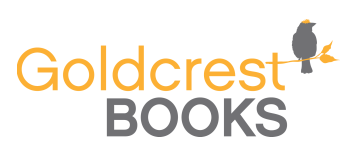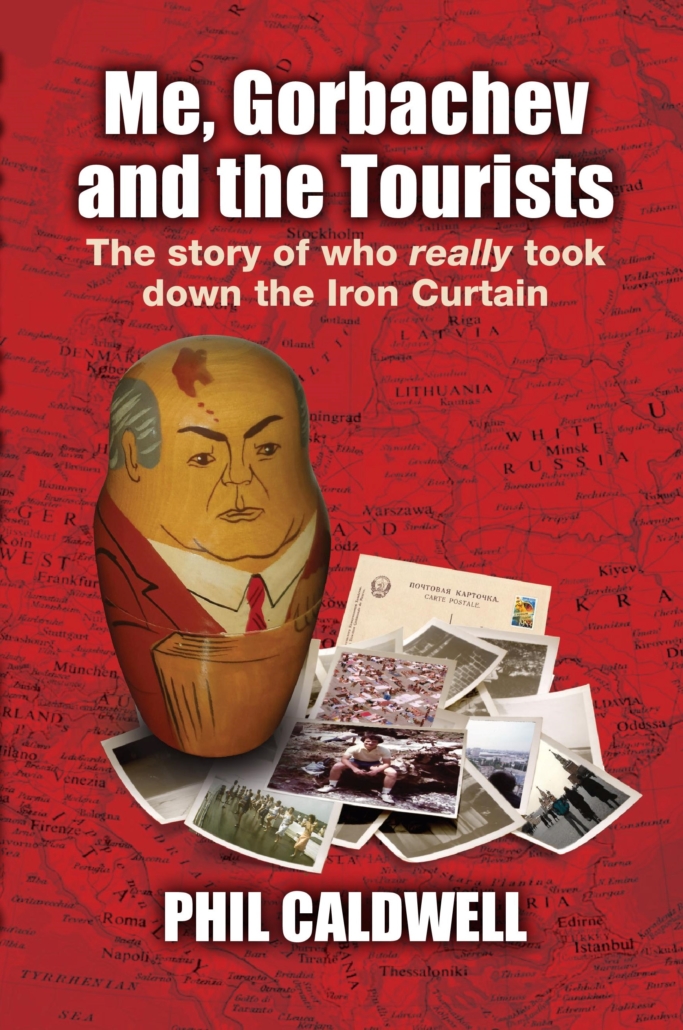Phil Caldwell’s early career working in the travel industry of the 1980s took him into the Soviet Union, Romania and other ‘Iron Curtain’ countries allowing him to witness first-hand the harsh realities of life under the totalitarian regimes in power.
This book is an account of his remarkable experiences from that momentous period in European history, his adventures, brushes with the authorities and attempts to navigate the system, often against overwhelming odds.
Caldwell’s narrative shocks and amuses in equal measure, and is always engaging and revelatory. Interspersed with helpful facts on political events and background, he considers too whether the collapse of communism in Eastern Europe was purely down to the actions of one man, or whether other, less obvious factors played a part.
Available to buy from Amazon
With Christmas over and the new year underway, the talk has turned to holidays! Have you booked yours yet? There are apparently (if the radio ads are to be believed) lots of deals to be had! Holidays and travel are just some of the themes in Phil Caldwell’s new book, Me Gorbachev and the Tourists which is a fascinating look back at holidays into Eastern Europe in the 1980s. It was also a momentous period in history so, as the title suggests, it also looks into the political climate and historic events of that period. Here’s what he had to say when I caught up with him before Christmas.
What inspired the idea for your book?
It was September 2020, and I happened to be watching a re-run of an episode of Michael Palin’s superb ‘Pole to Pole’ series. As I recall, that episode played out in Archangel and Moscow in 1991, just months before the Soviet Union collapsed. I thought to myself: ‘Gosh, this was filmed nearly thirty years ago, and it’s starting to feel like ancient history! Yet I was there in the previous decade, travelling and working not only in the Soviet Union but throughout Eastern Europe, and at a time when the foundations were unknowingly being laid for the empire’s demise. Could my experiences, including some ‘being there when it happened moments’, be worth retelling, now, with the distance of so much time?’
With my travel business pretty much dormant, thanks to the impositions on trade caused by lockdown, I was spending far too much time in front of the TV, not least soaking up a lot of world news (hoping perhaps for some rays of hope on the Covid front!). Two news features on Al Jazeera, one concerning the demonstrations in Minsk against the Belarusian dictator Lukashenko, the other featuring protests by students in Bangkok in front of the German embassy, struck me as having direct physical parallels with two seismic events in 1989, both key in the eventual destruction of communist regimes and the fall of the Iron Curtain. One of these was the moment when thousands of East German refugees, who had been camping for days in and around the West German embassy in Prague, were allowed to escape to the West – and to freedom – and at which I had been present; the other was the start of the Romanian revolution, a country I had deep connections with. The latter parallel involved tyrannical rulers being heckled, much to their surprise and to that of the outside world.
I suppose the moral of this is: too much time spent in front of the TV need not necessarily be a bad thing! The idea of writing a book about my experiences during that momentous period quite literally sprang from too much immersion in the rectangular box in front of me, and the realization that – provided I could find a way to give context to my story through some basic education on the geopolitical background, as certainly many here at home may not have more than a sketchy knowledge of the history of that era – my own chronicle of what it was like to work and operate behind the Iron Curtain could well turn out to be a fascinating read.
What was one of the most surprising things you learnt in creating your book?
Without any doubt – the hidden power of memory. I started my travel business in 1990, on the back of the changes sweeping through Eastern Europe, and, as any business owner will attest, had been consumed by it for far too long and to the exclusion of much else. Building up and running the business had been eating up far too much mental energy, and had meant that I’d allowed far too little space for reflection: when running a business, the emphasis is on securing the present and planning for the future, with comparatively little time spent dwelling on the past, let alone a past unconnected with the functioning of the business. I had spent much time in Eastern Europe since 1990, but had not really contemplated the societal and structural changes that had taken place in any great depth, even though they were there before my eyes.
Once I started to note down my memories from the eighties, collating the fragments of anecdotes residing in the inner recesses of my mind, a treasure trove was unlocked and gleefully exposed. I would focus on one particular event or story, and suddenly a torrent of related memories would begin to flow, fine details long forgotten; even conversations. Helpful triggers included documents from my days working on the Danube, a diary I had written on my first visit to the GDR in 1976, and my course notes from Erfurt in 1981; and luckily a wealth of (usually rather poor quality) Kodak instamatic photos. Each document, picture, scribbling would conjure up other images, additional memories, and as I started to form a list of possible inclusions I concluded that there was definitely going to be enough material to fill sufficient pages for this to become a proper book.
What part of the book was the most fun to write?
I enjoyed experimenting with different styles of writing for different sections of the book. The historical narrative is generally matter-of-fact, though I try to weave and link it increasingly into the main story, to a point where the two come together in the final stages. The task there was how to make the factual appear not too bland, and to keep it fairly brief so as not to be too dominant. Then there was the opportunity to try some more classic prose, for example at the start of the ‘The Hills Are Alive’ chapter, to test my ability to describe scenes, landscapes or spectacles. This probably afforded the greatest challenge, and was immensely satisfying.
I guess what I enjoyed most of all, however, was writing the anecdotes, especially the amusing anecdotes, and bringing to life some of the absurd characters and situations I encountered so regularly during those years. This involved remembering and detailing conversations, and I think those give great insight into what it was like to be there at that time. Then, those characters and situations seemed normal, but now – forty years on – I see how comedic, and often tragic, some of them were, and they turned out to be key in enabling me to provide living and first-hand examples of just how bizarre this ‘other world’ actually was.
What was the hardest thing about writing your book?
When people read words like ‘socialism’, ‘communism’ or ‘totalitarianism’ there can be a tendency – understandably – for eyes to mist over, so I was at pains to make my book an accessible and relatively light read, and definitely not political. That was a challenge, as was trying to remain relatively impartial, as it is impossible not to use those words and concepts in the course of the book, given the subject matter and where and when the events described took place. Although overall the system was rotten to the core on so many levels, and there were some pretty ghastly people at its heart, it was not all bad, and I am at pains to put across my own belief that the multiple ills forced upon the societies of Eastern Europe were far more to do with the regimes in power than political creeds. Whilst this is a deeper conclusion in the book, I didn’t want it to hold sway over the many anecdotal elements of the story, and achieving balance did take some considered thought and work. What’s more, I did want the book to contain some sort of moral, or morals, too, to give it meaning over and above a series of personal experiences, including the role of tourism in the world: and I hope I’ve managed to get the balance right.
If you could spend a day with another popular author, who would you choose?
Bill Bryson and – if I am allowed a second one – Susan Fletcher (author of ‘Witch Light’, one of my favourite books, written in such a wonderful, almost intoxicating style, and featuring parts of our country very dear to me).



